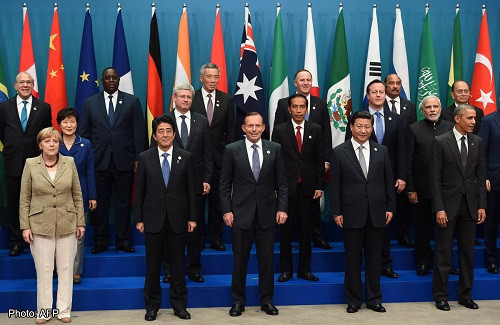G20 Summit Ends
The G20 Summit ended on the afternoon of November 16 with the adoption of a Brisbane action plan, aiming to help the economy grow by 2% over the next 5 years.
The figure is estimated to help the world economy generate an additional 2,000 billion USD as well as create 35 million new jobs. However, there are still many challenges ahead for the G20, with corruption becoming one of the top concerns.
 |
| Leaders attend the G20 summit in Brisbane, Australia. Photo: AFP |
| RELATED NEWS |
|---|
Ms. Maggie Murphy - Senior Coordinator, Transparency International, said: "Anti-corruption is one of the top 7 issues discussed at the G20, along with topics such as trade and development. The reason is that corruption is taking away 5% of the world's GDP every year. Currently, our data shows that about 1,000 billion USD is being taken away from developing countries every year because of corruption. That money should be used to build schools, hospitals or public services."
The figure of $1,000 billion per year also means half of the target that the G20 is striving to achieve in the next 5 years. Therefore, in parallel with a Brisbane action plan, the G20 this year also adopted a separate anti-corruption action plan, of no less importance.
“In this action plan, they commit to take anti-corruption measures through six packages of measures. These include working with private organizations to combat corruption in the private sector, proposing measures to combat corruption in the public sector. In addition, there are other measures such as protecting whistleblowers or preventing bribery by foreign companies,” said Maggie Murphy, Senior Coordinator, Transparency International.
The G20 has issued an anti-corruption action plan, but its impact is not limited to the G20. The G20’s anti-corruption rules and standards are an issue that many economies must pay attention to, including Vietnam, which is receiving investment and aid mainly from G20 economies.
According to VTV






